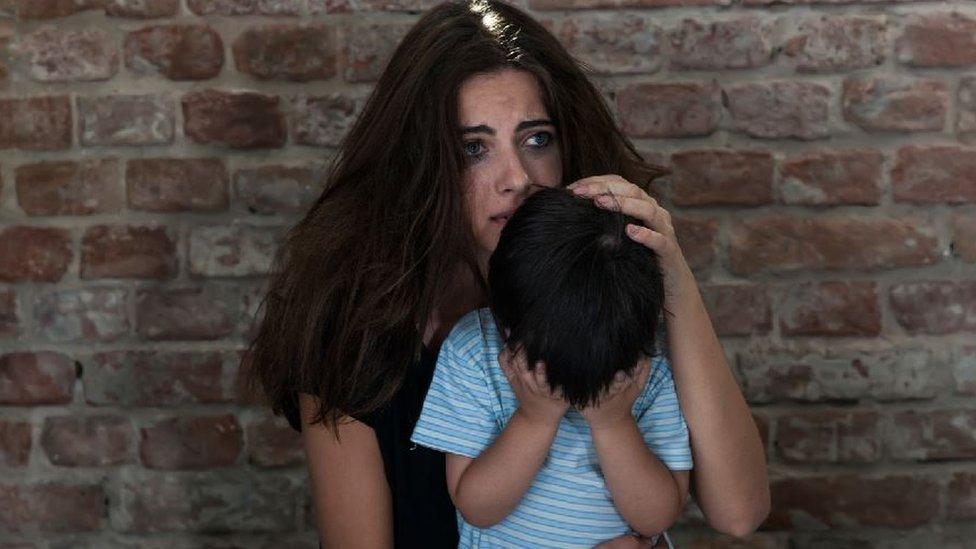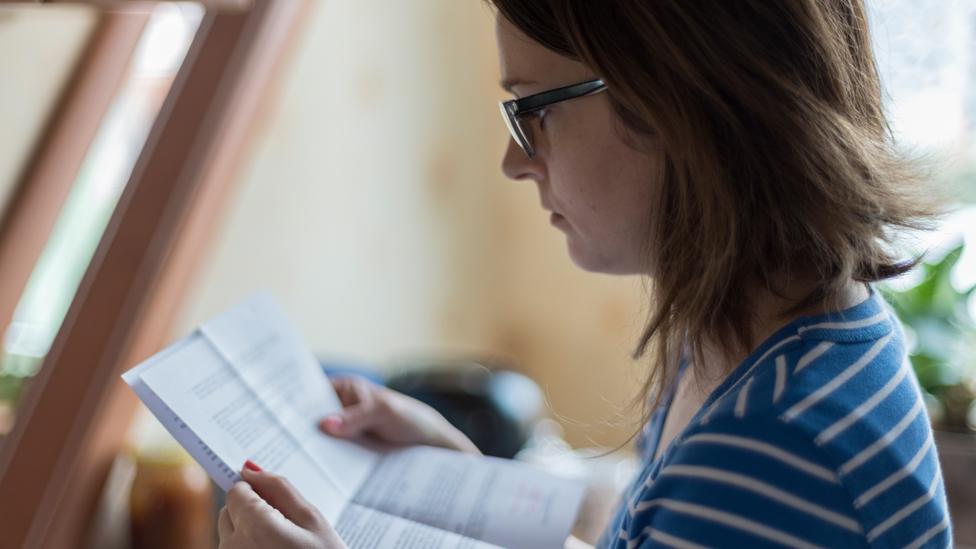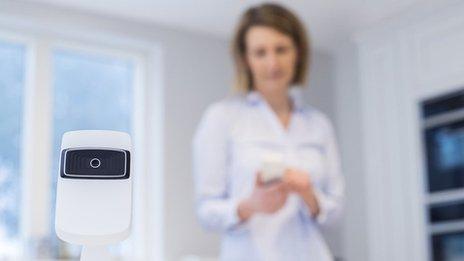Universal Credit hands power to abusers, MPs say
- Published

Welfare payments are turning the clock back to the 1950s and allowing abusers to control family finances, MPs say.
Under Universal Credit, payments are made to one person per household, often leaving abuse victims and their children dependent, a report, external by the Work and Pensions Committee said.
One abuse survivor said she feared the new system could leave her and her children with "nothing for weeks".
The government said abuse support teams are on hand in every Jobcentre.
The Universal Credit system, which has been rolling out across the UK since 2015, aims to simplify the benefits and tax credits system with a single monthly payment.
Claimants typically provide details of one bank account for payments. The committee heard that they can request split payments, but Jobcentres are advised to only offer them in "very exceptional circumstances".
Labour's Frank Field, the committee chairman, said: "This is not the 1950s. Men and women work independently, pay taxes as individuals, and should each have an independent income.
"Not only does UC's single household payment bear no relation to the world of work, it is out of step with modern life and turns back the clock on decades of hard-won equality for women."
MPs heard evidence that people living with abuse can see their entire monthly income, including money meant for their children, go into their abusive partner's bank account.
'Psychological stranglehold'
The report said that the single household payment made it harder for victims to leave and said "there is a serious risk of Universal Credit increasing the powers of abusers".
One victim of financial abuse told the BBC's Victoria Derbyshire programme that her ex-partner had exploited the child benefit system, filing claims while she was still in hospital after giving birth, and denying her access to funds.
She said the government's approach with Universal Credit placed more women at risk of this "psychological stranglehold".
"They have no understanding about economic abuse, the control that is exerted," she said. "We're keeping women in situations where we're risking their lives - that's not being overdramatic."
Conservative committee member Heidi Allen said Universal Credit was supposed to mirror the world of work, but no employer would pay wages into a partner's bank account.
"In the 21st Century women deserve to be treated as independent citizens, with their own aspirations, responsibilities and challenges," she said.
The report said that the Department for Work and Pensions had a "moral duty" to ensure payments did not help abusers maintain their control.
It called for a private room in every Jobcentre so people at risk of abuse could communicate with staff in confidence.
Each centre should also have a domestic violence specialist who understands the warning signs and can advise other members of staff, the report said.
Frontline workers told MPs that work coaches currently lack information about support for abuse victims.
Support for victims
Scotland has said it wants to split Universal Credit payments by default, but it needs the DWP to change its IT system.
The committee said the department should "seize the opportunity" to work with Scotland to test a new split payment system.
Women's Aid chief executive Katie Ghose called on the government to implement the recommendations.
"The government needs to take a long, hard look at Universal Credit through the lens of a survivor of domestic abuse. Safety first should be the principle," she said.
A government spokesman said that "the vast majority" of Jobcentres already had private interview facilities, and that alternative arrangements could be made in the others.
Centres also have specialist teams who can support domestic abuse victims, he said.
"Tackling domestic abuse is something this government takes incredibly seriously," the spokesman said.
"Staff do everything they can to make sure people fleeing domestic abuse get the help they need as quickly as possible."
- Published15 June 2018

- Published13 May 2024

- Published9 July 2018
